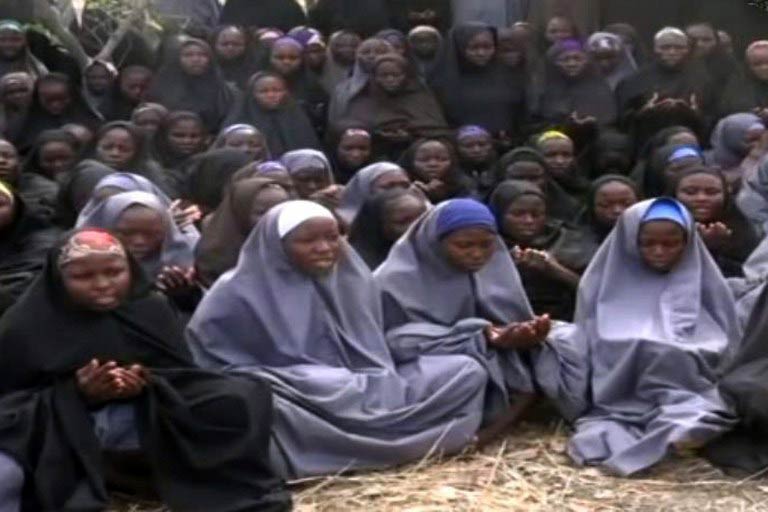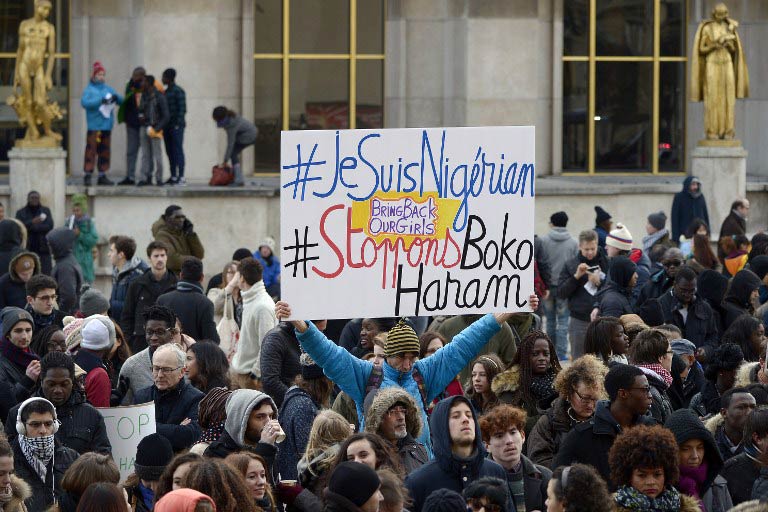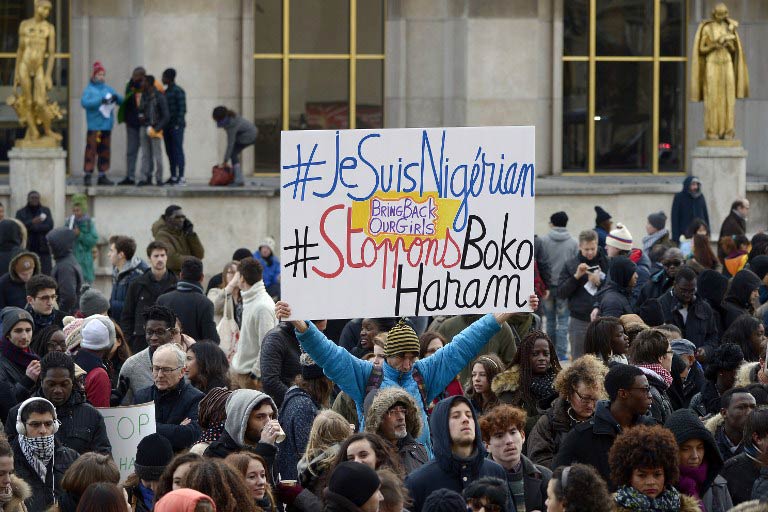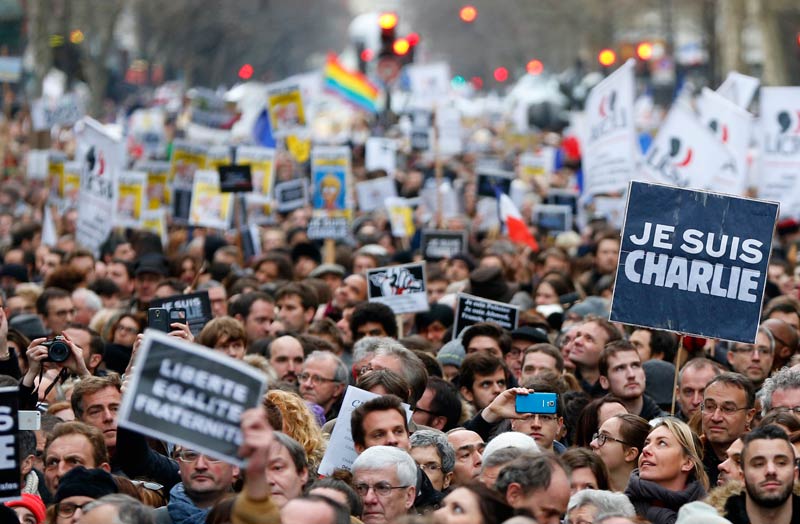
Nigeria on Tuesday marks the first anniversary of Boko Haram’s abduction of 219 schoolgirls from the northeastern town of Chibok, as part of a series of events planned around the world.
The commemoration and renewed calls for their release came as Amnesty International said the Islamists had kidnapped at least 2 000 women and girls since the beginning of last year.
The UN and African rights groups also called for an end to the targeting of boys and girls in the conflict, which has left at least 15 000 dead and some 1.5 million people homeless, 800 000 of them children.
The focus of the one-year commemoration was on Nigeria’s capital, Abuja, where a vigil has been held demanding the girls’ immediate release almost every day since they were kidnapped.
In New York, the #BringBackOurGirls campaign said the Empire State Building would be lit in its colours of red and purple, to symbolise an end to violence against women.
Prayers, candlelit vigils and marches have been held or are planned and campaign group member Habiba Balogun said it was important to mark the anniversary.
“It’s wonderful that the world is remembering and… sending the message that we are not going to forget and we are not going to stop until we know what has happened to our girls,” she told AFP.
Insurgency tactic
Boko Haram fighters stormed the Government Secondary School in the remote town in Borno state on the evening of April 14 last year, seizing 276 girls who were preparing for end-of-year exams.
Fifty-seven escaped but nothing has been heard of the 219 others since May last year, when about 100 of them appeared in a Boko Haram video, dressed in Muslim attire and reciting the Koran.
Boko Haram leader Abubakar Shekau has since said they have all converted to Islam and been “married off”.
The mass abduction brought the brutality of the Islamist insurgency unprecedented worldwide attention and prompted a viral social media campaign demanding their immediate release.
Nigeria’s government was criticised for its initial response to the crisis and was forced into accepting foreign help in the rescue effort after a groundswell of global outrage.
The military has said it knows where the girls are but has ruled out a rescue effort because of the dangers to the girls’ lives.
In a new report published on Tuesday, Amnesty quoted a senior military officer as saying the girls were being held at different Boko Haram camps, including in Cameroon and possibly Chad.
The Chibok abduction was one of 38 it had documented since the beginning of last year, with women and girls who escaped saying they were subject to forced labour and marriage, as well as rape.
‘I forgive Boko Haram’
#BringBackOurGirls organisers thanked supporters across the world, from ordinary men, women and children to public figures such as US First Lady Michelle Obama and Nobel laureate Malala Yousafzai.
The girls were “the symbol for the defence of the dignity and sanctity of human life, of the girl child, women, for all those oppressed, repressed, disadvantaged, hurting, unsafe,” they said.
“We must prioritise their safe return,” they said in a statement last week.
Malala, who was shot and nearly killed by the Pakistani Taliban for advocating girls’ education, on Monday published an open letter to the Chibok girls, describing them as “my brave sisters”.
The 17-year-old criticised Nigerian and world leaders for not doing enough to help secure their release and called the girls “my heroes”.
Outgoing President Goodluck Jonathan’s government has been accused of indifference to the fate of the girls after initially trying to downplay the size of the kidnapping and even deny it had happened.
Jonathan’s election defeat last month to former military ruler Muhammadu Buhari has raised hopes of a breakthrough. He has vowed to “spare no effort” to destroy the militants.
Twenty-one of the 57 girls who escaped are currently studying at the American University of Nigeria in Yola, the capital of neighbouring Adamawa state.
They told AFP in an email exchange with university staff they were hoping to make “positive future changes, not just in Chibok, but in our country and the world”.
The kidnapped girls were in their thoughts and prayers every day, they said, but they did not blame Boko Haram foot soldiers.
“I forgive Boko Haram for what they have done and I pray God forgives them, too,” said one.



